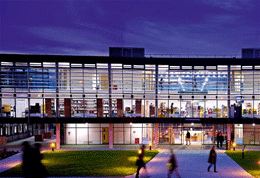22nd Apr 2015 5:00pm-6:30pm
M2, Board Room, Grand Parade
Talk

Nicola Clewer - 'The National September 11 Memorial and Museum in New York'
In December 2001, in his final speech as Mayor of New York City, Rudolph Giuliani said of the World Trade Centre site: ‘I really believe that we shouldn’t think about the site out there… as a site for economic development’. Instead he urged that the emphasis should be on building ‘a soaring, beautiful memorial’. ‘If we do that part right’, he argued, ‘then economic development will just happen. Millions of people will come here, and you’ll have all the economic development you want’.
In this work in progress paper I argue that Giuliani’s “win-win” scenario – wherein the imperative to commemorate the 9/11 attacks is not an impediment to the viable commercial redevelopment of “Ground Zero” but the very means through which it would be achieved – offers an important insight into the still emerging form and content of the World Trade Centre site and the ways in which it negotiates the competing demands of economic “realism”, patriotic sentimentality and the sites designation as “sacred ground”.
Sarah Haybittle - 'Correspondence, trace and the landscape of narrative'
My research examines what literary theory can bring to the practice of visual story telling. Through praxis it examines underlying systems and techniques relative to works of fiction, investigating what impacts and advances narratology can bring to visual communication approaches and methods.
The sources underpinning the research are threefold. Firstly, a visual/verbal practice, in which particular materials play a crucial role. A specific approach to story telling is taken, with the aim of producing fragmentary, enigmatic tales exploring memory as traces of the past. The second source is a letter and postcard – correspondence written in 1917 between a soldier and his sweetheart. The letters are part of the ‘Semple Collection’, sourced from the archives at the Imperial War Museum, and have been used to examine literary concepts, memory and visual story telling. Thirdly, Roland Barthes’ S/Z and Gerard Genette’s Narrative Discourse provide a theoretical framework. Specifically, my research examines what narratology can bring to the analysis and understanding of the source material (the letters); whether literary concepts extend conceptual and developmental approaches to creative materials; and what impact literary themes may have on visual methods and approaches to visual/verbal development and composition.

Please contact J.Lane2@Brighton.ac.uk for further details
The Arts and Humanities Research Forum (AHRF) is a research forum for staff and students in the University’s Arts and Humanities College generated by the Doctoral College and the Centre for Research and Development The AHRF is a fortnightly event series open to all research students and staff as well as open to the public as audience members. The forum provides a regular facilitative context in which researchers can trial or rehearse research designs, argue for and justify appropriate methodological approaches and frameworks, and debate theory/practice relationships in their studies.